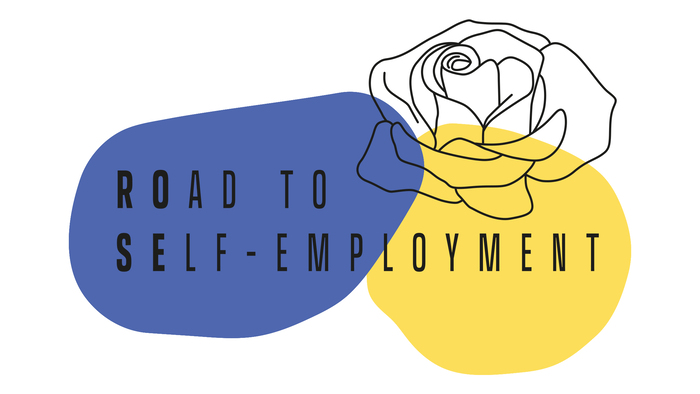How to do business in Czechia
A guide for entrepreneurial souls from Ukraine and other countries
Introduction
The Czech Republic is a country that has received a significant number of Ukrainian refugees and provided them with a temporary protection regime, while also providing significant financial, humanitarian and other material assistance to Ukraine.
Since the beginning of the war in Ukraine, the Ministry of the Interior of the Czech Republic has issued approximately half a million temporary protection visas. Most persons with temporary protection have settled in Prague, the Central Bohemia Region and the South Moravia Region. Most of the newcomers are prospectively interested in returning to Ukraine as soon as the situation allows. However, there are also many who are considering staying and living in the Czech Republic permanently.
Many of these people have taken advantage of the fact that the temporary protection regime is linked to free access to the labour market and have found work. However, in this emergency situation, it is evident that those with higher education and qualifications could not immediately find suitable work and often work in less qualified jobs.
However, the economic engagement of Ukrainian refugees can also take the form of running a small business. Ukrainian experience with running a business in the Czech Republic already exists, as many Ukrainians have been operating in the Czech Republic for many years as sole traders or owners of companies of various sizes.
A foreigner who wants to start a business in the Czech Republic (unless he/she is from the EU and associated countries) must have a residence permit in the Czech Republic. If the foreigner has been granted asylum or temporary protection status in the Czech Republic, he/she does not need such a permit and can do business as a Czech person. A foreigner can start a business in the Czech Republic in several ways, the most common being in the form of a trade and a limited liability company.
This brochure should be a useful guide when taking the first steps to start a business in the Czech Republic.
Advantages of individual entrepreneurship
Individual entrepreneurship as a so-called “self-employed person” has advantages and disadvantages compared to the employment relationship. Independent entrepreneurship is very much linked to the personal nature of each person – whether or not one prefers to make one’s own free decisions and take personal responsibility for oneself or one’s close persons while bearing certain increased risks. The main motive for most people to opt for self-employment activity is the freedom to run their own business as a self-employed person, i.e. to be able to determine for themselves what their normal work will look like, how they will organize it, when and where they will do it.
Individual entrepreneurs and sole traders are responsible only to themselves, which is a big difference compared to the employment relationship; unlike employees, they can adjust their work activities according to their wishes, but of course also according to the requirements of their market.
The practical experience of individual entrepreneurs shows the many advantages of individual entrepreneurship:
Variety
Each customer has their own often very diverse requirements. This is also due to the fact that self-employed persons usually carry out, in addition to their professional work, other activities that are not directly related to it – not only do they “produce” or provide services, but they also deal with customers and arrange everything else for their work (materials, logistics, document processing, accounting and tax issues, etc.).
Adaptability
Unlike larger companies, self-employed persons are able to adapt very quickly to the changes and demands of new trends in their industry.
Freedom
The possibility to choose their collaborators if they need them for their business is also an indisputable advantage; the self-employed person can also involve their family in their business in the form of collaborators.
Financial advantage
From a financial point of view, the specific advantage of self-employed persons is that they have lower mandatory payments (social and health insurance) than employees. This is due to the fact that they bear the entrepreneur’s risk and draw minimal state benefits. Lower taxation may be a reason for some people to want to do their work as a self-employed person rather than as an employee.
Who or what is a self-employed person
The Czech abbreviation “OSVČ” means a “self-employed person”. Citizens of Ukraine must meet the same conditions as Czech citizens to obtain a trade authorization as a self-employed person. They must:
- Be over 18 years of age;
- Prove integrity by presenting an extract from the criminal record;
- Meet professional qualifications (for trades other than free trades).
However, as foreigners, they must also provide proof of legal residence in the Czech Republic. Given the current specific situation of Ukrainian citizens who came to the Czech Republic as a result of the armed conflict in Ukraine, their basic residence title is a tolerance visa or temporary protection regime. This allows Ukrainian citizens, inter alia, free access to the labour market and also opportunities to run a business.
The application for a trade authorization for Ukrainian citizens must be accompanied by the following documents after completing a simple form:
- Proof of residence in the Czech Republic – in practice this is the relevant code in the passport or an email from the Ministry of the Interior of the Czech Republic confirming the temporary protection regime;
- Extract from the criminal record from Ukraine;
- Confirmation of the real property owner’s consent to the place of business;
- Depending on the type of trade, confirmation of recognition of qualifications (not necessary in case of free trades).
Trade authorization issued to Ukrainian citizens in this situation is valid for the period of residence in the Czech Republic.
The specific feature of running an individual business as a self-employed person is the so-called personal consumption. In practice, this means that self-employed entrepreneurs can use their “business” money at any time and without any restrictions for their personal needs, withdraw it or transfer it to a personal account. The other side of the coin of trade business is the fact that sole traders are liable for their business with all their assets.

Health insurance
Every self-employed person must also make advance payments for health insurance. Health insurance premiums for the main activity of a self-employed person are based on the average wage determined for the current year. The minimum advance payment that a self-employed person must pay in 2023 is set at CZK 2,722. The minimum advance payment must be paid even if the business generated a loss in the previous year or if the business has only just started and the Income and Expenditure Statement of the Self-Employed Person has not yet been filed. The advance payment is always due by the 8th day of the following month.
However, some self-employed persons (carrying out secondary activities) are not subject to the minimum assessment base (e.g. in case childcare, entitlement to old-age pension, persons with severe disabilities, employees) and no advance payments are made.
The self-employed person may also start to be included among the persons for whom the state pays insurance premiums (e.g. students, old-age or disability pensioners, women caring for a small child, etc.). In this situation, the self-employed person must report this situation to his or her health insurance company within 8 days of the change. The obligation to submit the Income and Expenditure Statement of the Self-Employed Person applies in all cases.
A voluntary option is the so-called sickness insurance. E.g. for young female entrepreneurs, it is important to realize that the sickness insurance provides financial assistance during maternity. By paying sickness insurance, self-employed persons also ensure (in addition to other benefits) that they will be paid sickness benefits during incapacity for work.
Types of trades
According to the Trade Licensing Act, trades are divided into 2 main groups:
-
Licensed trades
To operate a licensed trade, a special business authorization (a licence) must be granted. These trades include activities which the state has a special interest in regulating, e.g. manufacture and rental of weapons and ammunition, pyrotechnic surveys, production of spirits, exchange activities, etc.
-
Notifiable trades
-
Craft trades
For craft trades it is necessary to have professional qualifications in the profession. These professions include e.g. blacksmithing, carpentry, watchmaking, hairdressing and barbering, manicure and pedicure, manufacture of bakery and confectionery products, locksmithing, joinery, masonry, manufacture and repairs of musical instruments, painting and varnishing, etc.
-
Regulated trades
For regulated trades, it is also necessary to have proof of expertise. These professions include e.g. manufacture, repairs and professional assembly of machinery, chemical production, manufacture and processing of fuels, opticianry, accounting, etc.
-
Free trades
There is only one free trade, namely “Manufacture, trade and services”. However, it contains 80 branches of activity, from which the entrepreneur chooses those branches that he or she needs for his or her business –> more about free trade on the following page.
-
For the performance of licensed, craft and regulated trades, professional qualifications are required, i.e. proof that the person has sufficient education or experience to perform the work in question. If the self-employed person does not have the necessary education, experience or professional examinations for the trade, he or she must address this situation by hiring a responsible representative who is responsible for the proper operation of the trade and for ensuring that the trade and professional regulations in the given branch of business are complied with.
So what do I need for these trades?
- A document proving the professional qualifications of the self-employed person or the responsible representative;
- A declaration of consent of the responsible representative (if I do not have proof of expertise) to be appointed in this capacity, with a certified signature (if the responsible representative does not make this declaration in person before the trade licensing office);
- A document proving the legal reason for the use of the premises where the self-employed person has placed his or her establishment, if different from his or her place of residence.
FREE TRADE
Unlike the previous trades, free trades allow you to do business without the need for specific professional qualifications. What activities are involved?
- Advertising, marketing, media representation;
- Designing, decorating and modelling activities;
- Photographic services;
- Translation and interpreting activities;
- Provision of software, IT consultancy, data processing, hosting and related activities and web portals;
- Operation of a travel agency and tour guiding activities;
- Extracurricular education, organization of courses, training, including lecturing activities;
- Operation of cultural, culturally educational and entertainment facilities, organization of cultural productions, entertainments, exhibitions, fairs, shows, etc.;
- Operation of physical education and sports facilities and organization of sports activities;
- Household laundry, ironing, repair and maintenance of clothing, household textiles and personal goods;
- Repair and maintenance of household goods;
- Provision of family and household services;
- Preparation and elaboration of technical proposals, graphic and drawing work;
- Glazier work, framing and making passe-partouts;
- Arts and crafts metal processing;
- Cutting of technical and jewellery stones;
- Manufacture and processing of glass;
- Woodworking, manufacture of wood, cork, wicker and straw products;
- Manufacture of textiles, textile products, clothing and clothing accessories;
- Manufacture and repair of footwear, bag making and saddlery goods;
- Renting of movable property;
- Accommodation services;
- Warehousing, packing of goods, cargo handling and technical activities in transportation;
- Maintenance of motor vehicles and their accessories;
- Intermediation of trade and services;
- Wholesale and retail trade;
- Pawnbroking activities and retailing of second-hand goods;
- Manufacture of school and office supplies, manufacture of fashion jewellery, souvenirs, etc.;
- Manufacture, repair and maintenance of sporting goods, games, toys and prams;
- Manufacture of bicycles, wheelchairs and other non-motorized means of transport;
- Manufacture and repair of upholstery products;
- etc.

Distinction between main and secondary activities
The basic business activity of a self-employed person is the main activity and the self-employed person must pay health and social insurance advances when carrying out this activity. Business in this form is the dominant source of income.
On the other hand, the secondary business activity serves more as an extra income. They differ mainly in the conditions for mandatory payments and advances. A self-employed person carries out a secondary business activity if he or she fulfils some of the conditions laid down by law. These include, in particular, proof of any of the following facts:
- You are an employee (and your employer pays the insurance premiums for you);
- A regular or early old-age pension;
- Entitlement to a disability pension;
- Entitlement to parental allowance, maternity pay or sick pay due to pregnancy and childbirth from employee sickness insurance;
- Personal care of a child under 10 years of age;
- Student (up to the age of 26 if continuously training for a future profession).
When switching from a main activity to a secondary activity (e.g. when taking up employment or meeting another condition for secondary activity), the advance payments will only change accordingly for the secondary activity regime.
vedlejší činnost) se pouze příslušně změní platby zálohy na režim vedlejší činnosti.
Running a business without a trade
However, under the provisions of the Civil Code, it is possible to run a business in certain fields even without a trade authorization. A trade is only one form of business in the eyes of this act.
Outside of a trade, it is possible to do business in fields such as:
- agricultural production;
- forestry and water management,
- author’s activity;
- independent professions (actors, musicians, writers);
- doctors;
- experts;
- brokers;
- lawyers;
- tax advisers, etc.
However, sometimes it may be more advantageous to have a trade for these activities as well, e.g. with respect to taxation.
One entrepreneur can run several trades, but the condition is that he or she must have the appropriate authorization for each of them.
Self-employed person as an employer
If a self-employed person becomes an employer – i.e. he or she has employees under main employment, under an agreement to complete a job (in Czech: dohoda o provedení práce – DPP) or under an agreement to perform work (in Czech: dohoda o pracovní činnosti – DPČ) – he or she must register with the relevant authorities as an employer (i.e. with the tax office, the health insurance company, the Czech Social Security Administration, etc.).
This gives rise to various obligations towards the employee, e.g. after reporting to the tax office, he or she must submit monthly reports; he or she must also take out statutory employer’s liability insurance for damages in the event of an accident at work or occupational disease, etc.
An application form for the register of employers is filled in at the relevant Social Security Administration and a notice of entry into employment is filled in for each employee.
At the tax office it is necessary to register with the form – application for registration of a natural person/legal entity for income tax as a payer of income tax on income from employment and functional benefits (main employment, agreement to perform work) or income tax withheld at a special tax rate (agreement to complete a job).
In the case of deregistration from the register of employers, it is necessary to fill in the form Deregistration from the Register of Employers.
In the case of a health insurance company, the application form and the employer’s registration sheet or the employer’s mass notification shall be submitted; the same form shall also be used for deregistration.

Basic obligations of an entrepreneur
The Trade Licensing Act also imposes several important obligations on self-employed persons running a business, which they must fulfil in the course of their business. These include in particular:
To act under their trade name and to state their identification data (name, registered office, registration number) in business documentation (invoices, etc.);
To properly designate the establishment giving basic information (responsible person, number of the establishment, registration number, opening hours);
To ensure the presence of a responsible representative to the extent necessary if he or she operates the trade through such a representative;
To be responsible for the professional qualifications of the staff for the exercise of the profession as laid down by special legal regulations, and for knowledge of the safety regulations and regulations governing the protection of public health;
To ensure that a person with knowledge of Czech or Slovak is present in the establishment intended for the sale of goods or provision of services to consumers during the hours of sale or operation;
To communicate with the relevant trade licensing offices – to prove his or her identity and the identity of persons operating his or her business or responsible representatives, to report changes concerning the business (e.g. addresses of the registered office and place of business, interruption of business, termination of business).
Accounting of self-employed persons
A self-employed person may keep his or her accounts in three forms – income records, tax records or (double-entry) accounts.
The simplest for a starting self-employed person are income records (if he or she wants to tax his or her income through flat-rate expenses) and tax records, because in this case it is enough to record only two basic items – income/expenses and assets/liabilities.
Below is a brief introduction to these main methods of keeping accounts. More information can be found on the project website: https://www.podnikejvcesku.cz/jak-zacit-podnikat-v-cechach/
Income records
A self-employed person who wishes to claim expenses as a percentage of income (flat-rate expenses) for taxation purposes is required to keep records of income and to record receivables arising in connection with the activities from which the income arises.
It is sufficient to keep a clear record of income in the form of a simple table showing, in particular, the textual designation of the income, date, amount and other data according to the specific needs (type) of the self-employed person’s business. The same applies to records of receivables.
Tax records
Tax records of a self-employed person are not “accounting” in the proper sense of the word – they are a very simple system of recording only two basic items (income/expenses & assets/liabilities).
A self-employed person will keep tax records if he or she wants to claim expenses in his or her income tax return according to reality, i.e. according to individual documents which must be properly recorded and archived.
Double-entry accounts
Accounting as such is regulated by the Accounting Act and is intended to show in detail the entrepreneur’s economic management. The accounts must be kept by entrepreneurs registered in the Commercial Register. Accounting includes, in particular, data on the state of property, its movements, assets, liabilities, costs, revenues. However, in practice, a natural self-employed person does not usually maintain full accounting and uses the simpler instruments mentioned above.
Tax obligations of self-employed persons
After starting a business activity, self-employed persons with a permanent residence or domicile in the Czech Republic must register for personal income tax. The deadline for filing an application for registration as a payer of personal income tax is 15 days.
After registering the trade with the tax office (via the Single Registration Form or directly at the tax office), the tax office sends the decision on registration and assigns a tax identification number (in Czech: DIČ), which the self-employed person must use when communicating with the tax office or indicate on tax documents.
After the end of the current year, a self-employed person who is not exempt from this obligation must file a tax return and pay income tax and submit the Income and Expenditure Statement to the Czech Social Security Administration and the health insurance company. The last date for filing the tax return is 1 April of the following year and the calculated tax must be paid by the same date; if the self-employed person uses a tax adviser, the deadline for submitting the tax return is postponed until the end of June.
Tax return
A self-employed person must file a tax return only if in the previous year he or she had business income exceeding CZK 50,000 from 2023 onwards.
What is a tax return and how to prepare it? See: www.podnikejvcesku.cz/jak-zacit-podnikat-v-cechach/
Income taxation
There are two basic approaches to taxing self-employed persons – based on flat-rate expenses (a percentage of income) and income shown on the basis of tax records.
What are their advantages and disadvantages? See: www.podnikejvcesku.cz/jak-zacit-podnikat-v-cechach/
Road tax – if a self-employed person uses a car when running his or her business, he or she must make quarterly advance payments of road tax and file a tax return after the end of the year (by 31 January of the following year at the latest).

Loans for starting entrepreneurs
One of the basic problems of a starting self-employed person and a newly established company is financing the business activities. Access to finance for small, starting entrepreneurs and businesses is always more difficult than in the case of large companies. Both banks and various other financial institutions provide loans.
Loans range from tens of thousands to millions of Czech crowns and usually have to be secured by property or a share in the enterprise. The lending institution will require basic business documentation – e.g. a prepared business plan, etc. Loans for entrepreneurs include, for example, an overdraft or a credit card with a credit limit. A purpose loan usually carries a lower interest rate than a non-purpose loan.
Possibility of obtaining state support – loan and guarantee from the National Development Bank
Starting entrepreneurs can receive a subsidy from the Labour Office to start an individual business, this year up to approximately CZK 240,000.
Starting entrepreneurs (self-employed persons and limited liability companies) can also obtain state support in the form of soft loans and guarantees from the National Development Bank (NRB). This is a bank that is a special economic entity with the majority participation of the state and which provides support to small and medium-sized entrepreneurs through government-approved programmes, specifically through soft loans.
It is important to specify the exact purpose for which the money will be used for the business; the NRB does not provide non-purpose loans. In addition to loans, a specific guarantee can also be obtained from the NRB to support the obtaining of an ordinary commercial loan from commercial banks.
Other ways of running a business
Running a business through a limited liability company
The abbreviation “s.r.o.” (in Czech: společnost s ručením omezeným) represents another form of business – in the form of a limited liability company. This business form differs from a sole trader in many ways. A limited liability company is a legal entity with which the member is linked by ownership. Simply put, it is the establishment of a company as such.
Establishing a limited liability company entails, of course, a number of formalities, which is more complicated than starting a business as a self-employed person. However, it has a great advantage, for example, in that it protects the assets of the entrepreneur, who is liable for the business, only up to the amount of his contribution to the limited liability company.
Establishing a limited liability company involves several steps that are related in terms of substance and time. Before commencing the formal steps in relation to the authorities, the future entrepreneur must be clear on a number of basic things. First of all, he or she has to choose the subject of the business (it is recommended to prepare at least a simple business plan), the name of the company, the registered office of the company or the establishment, the amount of the registered capital.
More information on limited liability companies can be found at www.podnikejvcesku.cz/jak-zacit-podnikat-v-cechach/
RUNNING A BUSINESS THROUGH A JOINT STOCK COMPANY
Establishing a joint stock company to start a business is more complicated and starting entrepreneurs tend not to choose this form of business for practical reasons.

Discontinuing or continuing a trade
An entrepreneur may discontinue his or her trade at any time without giving any reason. There is no limit to the period for which the business is discontinued; the entrepreneur may specify the period for which he or she discontinues the business, but may also discontinue it indefinitely.
However, the entrepreneur is obliged to notify the Trade Licensing Office in writing in advance if the trade is discontinued for more than 6 months. The trade shall be discontinued on the date of delivery of the notice of discontinuation of the trade to the Trade Licensing Office or on a later date specified in the notice.
The entrepreneur must notify the Trade Licensing Office in writing in advance of continuing the trade. The discontinuation and resumption of the trade must also be notified to the Czech Social Security Administration and the relevant health insurance company.
Starting or terminating a trade in an establishment
The entrepreneur operates his or her trade at a specific place – the establishment. The establishment may be the entrepreneur’s own flat or separate rooms and premises; it may also be a stall or a mere vending machine located anywhere.
At the request of the Trade Licensing Office, the entrepreneur is obliged to prove the right of ownership or use of the premises or rooms of the establishment. The entrepreneur is also obliged to ensure that the establishment is suitable for the operation of the trade in accordance with special legal regulations (e.g. the Building Act).

Social insurance
Social insurance is paid to the competent Social Security Administration.
In the first year of the main business activity, monthly advances are paid in the minimum amount, which for 2023 is CZK 2,944. No advance payment for social insurance is made in the first year of the secondary business activity. In subsequent years of business, the amount of social security insurance premiums depends on the amount of income in the previous tax year, but at least the minimum advance payments must always be made.
Social insurance advances are always due from the first to the last day of the month for which the advance is intended. The relevant payments must be credited to the administration’s bank account no later than the 20th day of the following month. Under certain conditions, the District Social Security Administration may be asked to cancel advances.
More information can be found here:
After the end of the financial year, the self-employed person must file a tax return and, following the tax return, must also file the Income and Expenditure Statement of the Self-Employed Person within one month of filing the tax return. Both statements must be filed after the end of the year by the end of April.
Both forms can be obtained from the District Social Security Administration, from the health insurance company, or can be downloaded from the website – for 2023 the form will be available in early 2024.